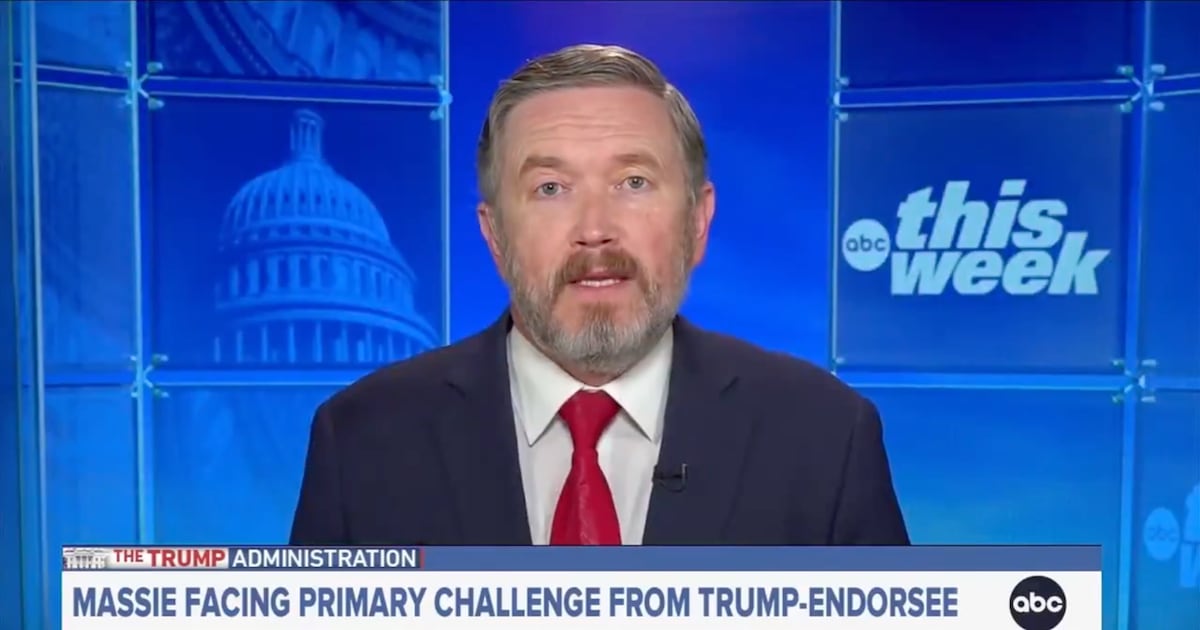
I disagree with John Avlon's overly excited case for former Nebraska Sen. Bob Kerrey to retake the seat he retired from 12 years ago, and I'd like to add some perspective as a longtime Nebraska resident.
Nebraska's version of prairie politics will confuse many readers, but here's the simplest summary possible. At the turn of the 20th century, the populist movement swept through rural parts of the country. Nebraska was near the center of it all, and there remain elements of this style of politics in the state, even though it is now heavily Republican. One way to observe this is Nebraska's tendency to send conservative Democrats to the senate in spite of a massive Republican advantage in registered voters.
There are now about 373,300 Democrats in Nebraska, down about 20,000 from 2008. The number of Republicans is down just slightly, to about 557,000.
So there's that. Yes, Nebraska frequently elects moderate Democrats. The question, then, is why did the current Democratic senator choose to retire? Enjoy:
Ben Nelson’s “Cornhusker Kickback,” as the GOP is calling it, got all the attention Saturday, but other senators lined up for deals as Majority Leader Harry Reid corralled the last few votes for a health reform package.
Nelson’s might be the most blatant – a deal carved out for a single state, a permanent exemption from the state share of Medicaid expansion for Nebraska, meaning federal taxpayers have to kick in an additional $45 million in the first decade.
Nebraskan voters felt embarrassed about this deal -- and to make things worse, the funding was stripped when the bill went through budget reconciliation. So there's the memory of the "Cornhusker Kickback" with nothing to show for it. Every Senator who voted for Obamacare is accused of being the 60th vote, but few managed to bungle the process as badly as Nelson. Voters won't forget this.
I would also differ with the evidence Avlon presents in his case for a moderate Bob Kerrey. He quotes Jane Kleeb and the Nebraska Farmers Union, and that's that's fine -- Jane is a great lady1, and the NeFU does decent work. But neither are centrist, moderate organizations. Kleeb heads Bold Nebraska, one of the state's foremost progressive groups, and the NeFU is a holdover organization from the height of the prairie populist movement.2
Again, perfectly fine people and groups, but less representative of moderate or independent voters than boilerplate progressivism. To turn the argument on itself, this would be like quoting the Chamber of Commerce and a conservative activist to make the case that Deb Fischer would be a pragmatic, useful candidate. Would you find the quote? Sure. But would it reflect anything beside quoting committed political partisans? Nope.
Finally, a cautionary tale for people who care about civil discourse and clean politics. Kerrey's numbers are moving for a reason:
Surrounded by neighboring ranchers and friends from Cherry County, Deb Fischer on Tuesday mounted a spirited defense of a 1995 land dispute lawsuit that has become the centerpiece of a TV ad campaign mounted by Bob Kerrey.
The lawsuit filed by Fischer and her husband, Bruce, against ranching neighbors Les and Betty Kime was pursued upon the advice of their attorney to "clarify a land boundary" in order to clear the path for sale of some of their own land, Fischer told a crowded news conference in Lincoln.
Most of the allegations by the Kerrey campaign are inaccurate or distorted, Fischer said, and nine neighbors from the Valentine area stood at her side to testify that she is a good neighbor and that land boundaries on sprawling ranches in Cherry County are not always that easy to determine.
A more succinct way to put it: Kerrey's campaign is smearing the character of Fischer. His campaign has centered not on being a centrist or a moderate, but on attempting to cast doubt on the character of his opponent.
That's politics, sure. But don't let a mushy desire for centrism obscure reality.
And finally, I think Avlon's characterization of the difference between the two candidates was quite unfair.
The former Medal of Honor winner, governor, senator, presidential candidate and college president is probably one of the most qualified men to ever run for the U.S. Senate. Kerrey is widely respected in Washington for his principled independence, and ability to create bipartisan coalitions to solve a wide range of problems—which is one reason he’s been guaranteed a senior position if he returns to the Senate.
His opponent, Deb Fischer, on the other hand, is an obscure, socially conservative state senator who defeated a respected state attorney general in a Jim DeMint-backed Tea Party challenge. Fischer’s policy focus is primarily centered on climate-change denial and a belief in banning abortions even in cases of rape and incest—making her an instant ally ofTodd Akin and Richard Mourdock. But those same beliefs ensure that she would be a perennial senate backbencher in a state accustomed to influence in Washington.
Context matters. I don't enjoy the carpetbagger attacks leveled at Kerrey, but this is a guy who flirted with running for the mayor of New York City and whose wife made fun of Nebraskans in Vogue. He was a great public servant for Nebraskans, but he's been out of the game for over a decade, and a lot has changed.
And Fischer is not some "obscure" candidate whose "policy focus is primarily centered on climate-change denial and a belief in banning abortions even in cases of rape and incest." I don't enjoy the positions she holds on either issue, but to characterize these as her policy focus is quite unfair. Fischer is wholly of the Tea Party. She's certainly more conservative than I, and I wish she'd focus less on the deficit and more on working to clean up the USDA.
But still, come on. There's more to a Senate race than treating it as an apocalyptic battle between one last good man and the evils of anarchic Republicanism. Trust me, I've tried to make the argument, and it doesn't work.
Footnotes:
(1) I'd like to offer a friendly shout-out to Kleeb's husband, Scott, who unsuccessfully ran for the House in Nebraska's rural 3rd District in 2006. Stand up guy, and a solid young leader in our state.
(2) I have frequently sparred on Twitter with the NeFU's spokesman, Graham Christensen. Perfectly nice guy.






